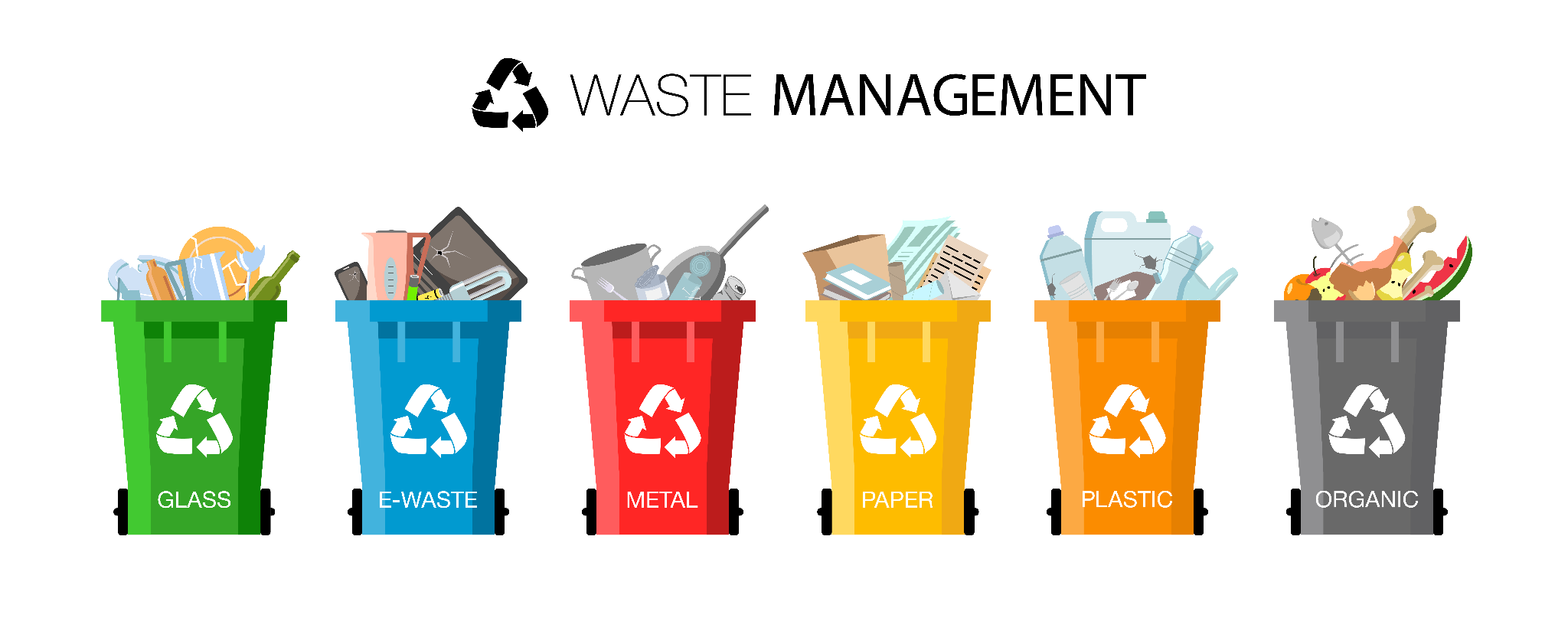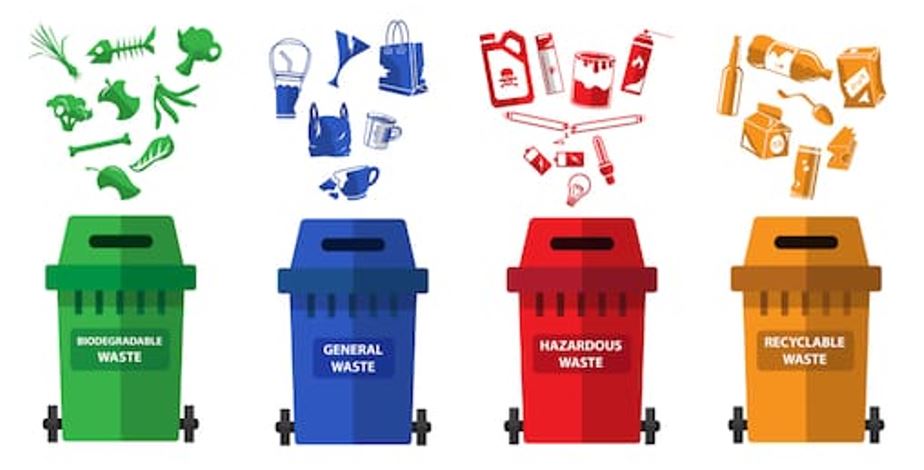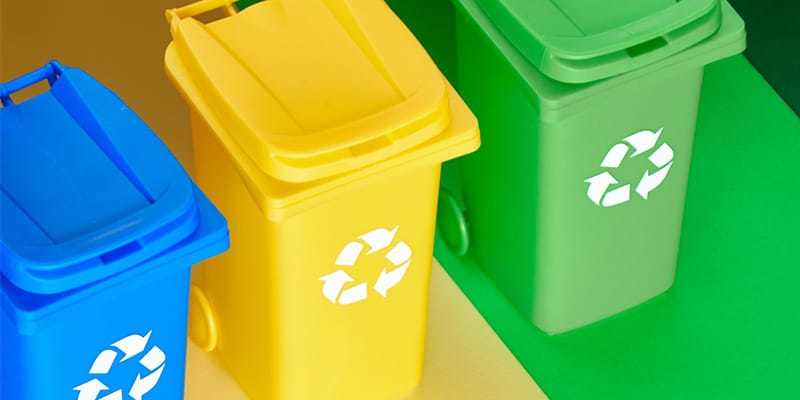Waste management refers to the collection, transport, processing, and disposal of waste materials. It is an essential service that ensures public health and safety, environmental protection, and resource conservation. The management of waste has become increasingly important in recent years due to the exponential growth of waste generation and its adverse effects on the environment and human health.
The concept of waste management has evolved over time from simple waste disposal to more sophisticated waste reduction and recycling programs. Waste management is divided into various stages, which include waste generation, storage, collection, transportation, processing, and disposal.
Waste Generation
Waste generation is the first stage of waste management, which involves the production of waste materials. The amount of waste generated is influenced by various factors such as population growth, economic development, and lifestyle changes. The types of waste generated can be broadly classified as municipal solid waste, hazardous waste, and industrial waste.
Municipal Solid Waste (MSW) is the waste generated by households, commercial establishments, and institutions. It includes food waste, paper, plastics, glass, metals, and other materials. Hazardous waste is waste that poses a threat to public health or the environment due to its toxic, reactive, or flammable nature. Industrial waste is generated by industrial processes and can be hazardous or non-hazardous.

Waste Storage
Waste storage refers to the temporary holding of waste materials before they are collected for disposal or processing. The purpose of waste storage is to prevent littering, reduce odor, and protect public health and safety. Waste storage can be either on-site or off-site.
On-site storage is the storage of waste materials on the premises where they are generated, such as households, commercial establishments, and institutions. Off-site storage is the storage of waste materials at a designated location before they are collected for disposal or processing.
Waste Collection
Waste collection involves the transportation of waste materials from the place of generation to the processing or disposal facility. Waste collection is a critical stage of waste management as it ensures the timely removal of waste materials and prevents the accumulation of waste in public places.
Waste collection can be either door-to-door or communal. Door-to-door collection involves the collection of waste materials from individual households, commercial establishments, and institutions. Communal collection involves the collection of waste materials from designated collection points such as public bins.
Waste Transportation
Waste transportation is the movement of waste materials from the collection point to the processing or disposal facility. Waste transportation can be by road, rail, or water, depending on the location of the processing or disposal facility.
Waste transportation is regulated by various laws and regulations to ensure the safe and environmentally sound movement of waste materials. The transportation of hazardous waste is subject to stricter regulations than non-hazardous waste.
Waste Processing
Waste processing involves the conversion of waste materials into a form that is safe for disposal or further use. Waste processing can be either physical, chemical, or biological, depending on the type of waste and the desired end product.
Physical waste processing involves the mechanical separation of waste materials into different components such as plastics, metals, and glass. Chemical waste processing involves the use of chemical reactions to convert waste materials into non-toxic compounds. Biological waste processing involves the use of microorganisms to break down organic waste materials into compost.
Waste Disposal
Waste disposal is the final stage of waste management, which involves the permanent disposal of waste materials. Waste disposal can be either landfilling, incineration, or recycling.
Landfilling involves the burial of waste materials in a designated landfill site. Landfilling is the most common method of waste disposal and is suitable for non-hazardous waste. Incineration involves the combustion of waste materials at high temperatures, which reduces the volume of waste and produces energy. Incineration is suitable for hazardous waste and medical waste. Recycling involves the conversion of waste materials into new products, which reduces the amount of waste that is sent to landfill sites and conserves natural resources.
Waste management practices vary from country to country and depend on various factors such as the level of economic development, population density, and availability of resources. Developed countries generally have more sophisticated waste management systems that incorporate waste reduction, recycling, and composting programs. Developing countries, on the other hand, may rely more on landfilling and open dumping due to limited resources and inadequate infrastructure.

The impact of waste on the environment and human health is significant. Landfills and open dumps can contaminate soil and water resources, emit greenhouse gases, and cause air pollution. Incineration can release toxic pollutants such as dioxins and furans, which pose a risk to human health. Improper handling of hazardous waste can result in accidents and environmental disasters, such as oil spills and chemical leaks.
To address these challenges, various waste management strategies have been developed, such as waste reduction, recycling, and composting programs. Waste reduction involves minimizing the amount of waste generated by reducing consumption, reusing materials, and buying products made from recycled materials. Recycling involves the conversion of waste materials into new products, which reduces the need for virgin materials and conserves natural resources. Composting involves the conversion of organic waste materials into compost, which can be used as a fertilizer for plants.
Waste management also plays a crucial role in achieving sustainable development goals (SDGs). SDG 11, for instance, focuses on sustainable cities and communities and emphasizes the importance of waste management in achieving this goal. Sustainable waste management practices can improve public health, protect the environment, and promote economic growth.
conclusion
waste management is an essential service that ensures public health and safety, environmental protection, and resource conservation. Waste management practices have evolved over time, from simple waste disposal to more sophisticated waste reduction and recycling programs. Waste management involves various stages, such as waste generation, storage, collection, transportation, processing, and disposal. To address the challenges of waste management, various strategies have been developed, such as waste reduction, recycling, and composting programs. Sustainable waste management practices can contribute to achieving sustainable development goals and promote a cleaner, healthier, and more prosperous future for all.

